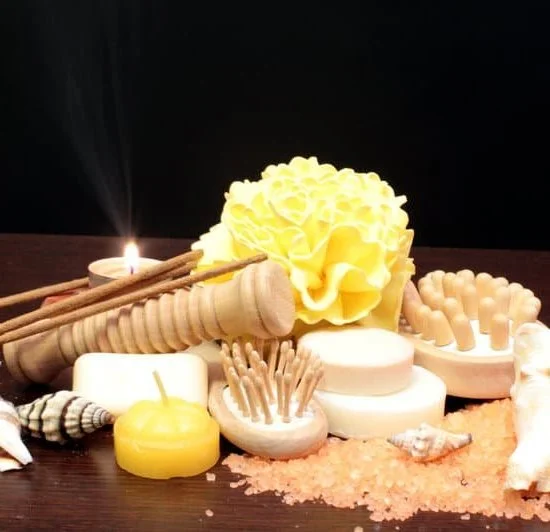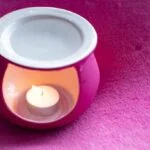Medical marijuana has been a hot topic in recent years, with an increasing number of people exploring its potential therapeutic benefits. One emerging trend is the use of medical marijuana in aromatherapy practices. This article will delve into the legal landscape surrounding the use of medical marijuana, explore the therapeutic benefits of aromatherapy, and examine how these two modalities intersect.
With more states legalizing medical marijuana, there is growing interest in understanding the regulations surrounding its use. This article will provide insight into the current legal landscape and address whether medical marijuana can legally be used in aromatherapy.
Aromatherapy, on the other hand, has long been used for its potential to promote holistic wellness. The practice involves using essential oils and plant extracts to enhance physical and psychological well-being. We will explore the therapeutic benefits of aromatherapy and how it complements the potential benefits of medical marijuana. Join us as we take a closer look at this intersection and consider case studies that highlight success stories of using medical marijuana in aromatherapy practices.
The Legal Landscape
At the federal level, however, marijuana remains classified as a Schedule I controlled substance under the Controlled Substances Act. This means that, according to federal law, marijuana is considered to have a high potential for abuse and no accepted medical use – making it illegal to possess, manufacture, or distribute. Despite this classification, the federal government has adopted a policy of non-interference with state medical cannabis laws.
It’s important for practitioners and individuals interested in using medical marijuana in aromatherapy to familiarize themselves with the specific regulations in their respective states or countries. Understanding the legal framework can help ensure compliance with all applicable laws and regulations while incorporating medical marijuana into aromatherapy practices.
| State/Territory | Status |
|---|---|
| California | Legal |
| New York | Legal |
| Texas | Restricted (Low-THC) |
Exploring the Therapeutic Benefits of Aromatherapy
Aromatherapy has been used for centuries as a natural way to promote health and well-being. The use of essential oils and plant extracts in aromatherapy has been shown to have various therapeutic benefits, including reducing stress, enhancing relaxation, improving mood, and even aiding in the relief of certain physical ailments. Whether it’s through inhalation or topical application, aromatherapy can have a powerful impact on one’s overall health.
Therapeutic Benefits of Aromatherapy
One of the key benefits of aromatherapy is its ability to help manage stress and anxiety. Essential oils such as lavender, bergamot, and chamomile are known for their calming properties, and when used in aromatherapy, they can help reduce feelings of stress and promote relaxation. Additionally, certain essential oils like peppermint and eucalyptus have been found to aid in relieving symptoms of respiratory conditions such as congestion or coughing when used for inhalation.
Aromatherapy for Pain Management
In addition to its psychological benefits, aromatherapy has also been explored for its potential in pain management. Essential oils like ginger, rosemary, and juniper are believed to possess analgesic properties that may help alleviate discomfort from headaches, muscle pain, or even chronic conditions like arthritis. When these essential oils are incorporated into massage oils or diffused in the air during therapy sessions, they can provide a natural alternative for pain relief.
Enhancing Mood and Cognitive Function
Furthermore, the use of essential oils in aromatherapy has been linked to improved mood and cognitive function. Scents like citrus fruits or peppermint may have uplifting effects on one’s mood and can even enhance mental clarity when used during activities like studying or working. Some studies also suggest that specific essential oils may aid in memory retention and focus when utilized effectively in an aromatherapy practice.
Overall, aromatherapy offers a diverse range of therapeutic benefits that can significantly contribute to one’s overall wellness. So how can medical marijuana legally be used in aromatherapy? Let’s explore this further in the next section.
The Relationship Between Medical Marijuana and Aromatherapy
The use of medical marijuana in aromatherapy has gained attention due to the growing interest in alternative and natural methods for treating various health conditions. Aromatherapy, which involves the use of essential oils and plant extracts, is often used to promote relaxation, improve mood, and alleviate certain symptoms.
On the other hand, medical marijuana has been legalized in some regions for its therapeutic effects on chronic pain, anxiety, and other medical conditions. The combination of these two practices raises questions about their compatibility and potential benefits.
Potential Synergy Between Medical Marijuana and Aromatherapy
Some experts believe that the compounds found in essential oils used in aromatherapy can enhance the therapeutic effects of medical marijuana when used together. For example, certain essential oils like lavender or chamomile are known for their calming properties which may complement the relaxing effects of medical marijuana strains. This potential synergy opens up new possibilities for utilizing both practices to address a wider range of health issues.
Legal Considerations
When considering using medical marijuana in aromatherapy practices, it’s important to be aware of the legal regulations surrounding both treatments. In many regions, cannabis is still heavily regulated and may only be legally obtained with a prescription or as part of a medical marijuana program.
Understanding the legal landscape can help ensure that practitioners stay compliant with local laws while incorporating this combination into their wellness offerings. Moreover, it is vital to research whether specific essential oils used in aromatherapy could have any contraindications with cannabis compounds.
Research Gaps and Emerging Trends
Despite increasing interest in the relationship between medical marijuana and aromatherapy, there is still a lack of comprehensive scientific research on this topic. Future studies exploring the potential benefits and drawbacks of combining these practices can provide additional insight into their effectiveness. As more individuals seek natural alternatives for managing health concerns, the integration of medical marijuana into aromatherapy <1>remains an area with significant potential for growth within the wellness industry.
Case Studies
Medical marijuana has gained popularity in the wellness industry, and its use in aromatherapy has shown promising results. Here are some success stories of using medical marijuana in aromatherapy:
1. Pain Management: Many individuals have reported significant pain relief after using medical marijuana in aromatherapy. The soothing and relaxing properties of certain cannabis strains can help alleviate chronic pain, migraines, and muscle discomfort.
2. Anxiety and Stress Relief: Aromatherapy with medical marijuana has been found to be effective in reducing anxiety and stress levels. The calming effects of specific terpenes found in cannabis can promote relaxation and improve overall mood.
3. Sleep Enhancement: Aromatherapy using medical marijuana can also aid in improving sleep quality. Some individuals have reported better sleep patterns and relief from insomnia after incorporating cannabis-infused oils or diffusers into their nighttime routine.
Case studies have shown that when used responsibly and under the guidance of a healthcare professional, medical marijuana can provide significant therapeutic benefits when used in conjunction with aromatherapy practices. It is important to note that while there are success stories, the use of medical marijuana in aromatherapy should always be approached with caution and within the legal boundaries outlined by local regulations.
The Controversy
Another misconception is that using medical marijuana in aromatherapy is illegal. In fact, it can be legally used in some jurisdictions where medical cannabis is permitted. Many states and countries have legalized the use of cannabis for medicinal purposes, including aromatherapy, with proper certification and oversight from healthcare professionals.
Furthermore, there is a misconception that aromatherapy with medical marijuana is solely for recreational use. In reality, it has been shown to have therapeutic benefits for various conditions such as chronic pain, anxiety, insomnia, and nausea. The combination of cannabinoids like CBD and terpenes found in cannabis essential oils can offer relief and support holistic wellness when properly administered.
Lastly, there’s a misconception about the safety of using medical marijuana in aromatherapy. When utilized under the guidance of a qualified healthcare practitioner, it can be a safe and effective method for addressing specific health concerns. However, as with any form of therapy, it’s important to use caution and consult with a professional before incorporating medical marijuana into your aromatherapy practices.
| Myths | Misconceptions |
|---|---|
| Using medical marijuana will result in getting “high.” | Medical marijuana cannot be legally used in aromatherapy. |
| Aromatherapy with medical marijuana is solely for recreational use. | It may not be safe to use medical marijuana in aromatherapy. |
How to Incorporate Medical Marijuana Into Aromatherapy Practices
Medical marijuana can legally be used in aromatherapy, but it is important to understand the regulations and guidelines surrounding its use. Here are some ways to safely and effectively incorporate medical marijuana into aromatherapy practices:
1. Consultation with a Medical Professional: Before using medical marijuana in aromatherapy, it is crucial to seek advice from a healthcare provider or a qualified medical professional. They can provide guidance on dosage, administration methods, and potential interactions with other medications.
2. Selecting the Right Strain: Different strains of medical marijuana contain varying levels of cannabinoids such as THC and CBD, each with its own therapeutic properties. When incorporating it into aromatherapy practices, it is essential to choose the appropriate strain based on the desired effects. For example, CBD-dominant strains are often preferred for their relaxing and anti-anxiety properties.
3. Aromatherapy Methods: There are several ways to use medical marijuana in aromatherapy, including inhalation through diffusers or vaporizers, topical application using infused oils or lotions, and even incorporating it into massage therapy oils. Each method offers unique benefits and considerations for safe usage.
4. Adhering to Legal Guidelines: It is crucial to stay informed about the legal requirements for using medical marijuana in aromatherapy within your jurisdiction. This includes obtaining the necessary permits or licenses if applicable and complying with regulations regarding purchase, possession, and usage.
Incorporating medical marijuana into aromatherapy practices requires careful consideration of legal regulations, consultation with healthcare professionals, proper strain selection, and adherence to safe usage methods. By following these guidelines, individuals interested in exploring this therapeutic combination can do so responsibly while maximizing its potential benefits for wellness and overall health outcomes.
Conclusion
In conclusion, the relationship between medical marijuana and aromatherapy is a topic of growing interest within the wellness industry. While the legal landscape surrounding medical marijuana may vary from state to state and country to country, there are emerging opportunities for incorporating this therapeutic plant into aromatherapy practices. As more research continues to uncover the potential benefits of medical marijuana in aromatherapy, it is becoming increasingly clear that this combination can offer new avenues for holistic healing and wellness.
The therapeutic benefits of aromatherapy have been well-documented, and when coupled with the medicinal properties of medical marijuana, it creates a powerful synergy that can enhance overall well-being. Case studies have shown promising success stories of individuals finding relief from various ailments through the use of medical marijuana in aromatherapy. From managing chronic pain to reducing anxiety, the combination of these two modalities has demonstrated its potential in improving overall quality of life.
As the stigma surrounding medical marijuana continues to diminish and regulations evolve, the future looks bright for the integration of medical marijuana into aromatherapy practices. With further research and education, it is possible that we will see an increase in acceptance and utilization of this combination within the wellness industry.
As more individuals seek natural and alternative methods for addressing their health concerns, the potential impact of using medical marijuana in aromatherapy cannot be understated. It has the power to revolutionize traditional approaches to wellness and provide new opportunities for holistic care.
Frequently Asked Questions
Is Hemp Essential Oil Legal?
Hemp essential oil is legal in the United States as long as it is derived from industrial hemp with a THC concentration of no more than 0.3%. It is important to ensure that the product complies with federal and state regulations.
What Are the Laws for Marijuana in North Carolina?
In North Carolina, marijuana for both recreational and medical use remains illegal. Possession of any amount of marijuana is considered a misdemeanor, punishable by fines and potential jail time. However, some localities have decriminalized possession of small amounts.
How Many States Legally Allow the Use of Medical Marijuana?
As of now, 36 states in the US have legalized the use of medical marijuana. Each state has its own regulations regarding qualifying conditions, possession limits, and dispensaries. Some states also allow for home cultivation by registered patients or caregivers.

Are you looking for a natural way to improve your health and wellbeing?
If so, aromatherapy may be the answer for you.






